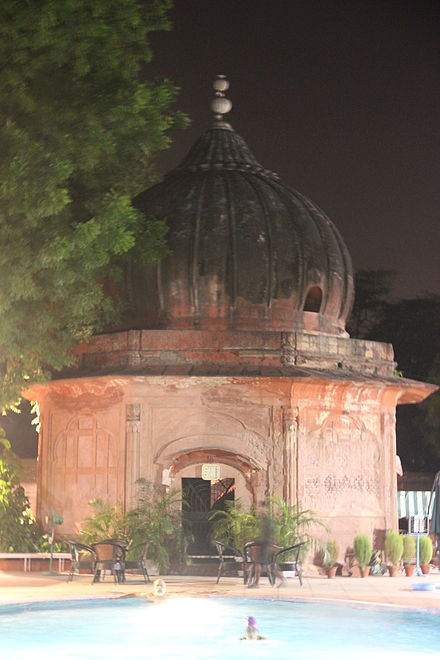
The Tomb of Syed Abid
Tomb of Syed Abid: A Historical and Spiritual Landmark in Delhi The Tomb of Syed Abid in Delhi is a significant monument that intertwines history, spirituality, and architecture. Its serene environment, coupled with its religious importance, makes it an essential stop for both pilgrims and tourists interested in exploring the cultural legacy of the Mughal period. Nearest Bus Stand- Jama Masjid Nearest Metro Station- Jama Masjid Nearest Railway Station- New Delhi Railway Station Nearest Airport- IGI
The tomb of Syed Abid, a loyal associate of the noble Nawab Khan Dauran Khan, stands as a testament to the architectural grandeur of the Mughal era, despite the tragic circumstances surrounding its creation. Syed Abid met his demise in battle, and in his honor, this mausoleum was constructed in 1036 Hijri, which corresponds to the year 1626 CE. The tomb lies near the renowned Lal Bangla, another splendid example of Mughal architecture, anchoring it in a region of historical and cultural importance. The tomb itself is an impressive structure, built entirely from a combination of lime-based cement and bricks. This traditional material was favored for its durability, and despite the passage of time, the structure remains robust, a testament to the skill of the craftsmen of that era. Here and there, traces of intricate tile-work can still be seen, offering a glimpse of the original decorative details that once adorned the tomb’s surface. These small fragments hint at the vibrant colors and artistry that have faded but once made the tomb a true marvel. Originally, the tomb was surrounded by a beautifully designed courtyard that featured a central water tank. This tank, likely once filled with clear water, would have been a refreshing feature, enhancing the serenity of the place. The courtyard was crisscrossed by a network of runnels—shallow channels used to distribute water in geometric patterns, typical of Mughal garden design. These runnels would have created a tranquil and picturesque environment, with water flowing gently around the tomb. Sadly, today, both the water tank and the runnels have fallen into disrepair, their former elegance now only a memory. The gateway leading into the tomb’s precinct is equally notable for its aesthetic appeal. It features a "sah-dari" or pavilion with three arched doorways, a design that is both graceful and functional. The symmetry of the arches, along with the refined proportions of the gateway, would have once offered a dignified entrance to this sacred space. Though time has undoubtedly taken its toll on the monument, the gateway still retains much of its original charm, standing as a beautiful, if weathered, introduction to the site.

